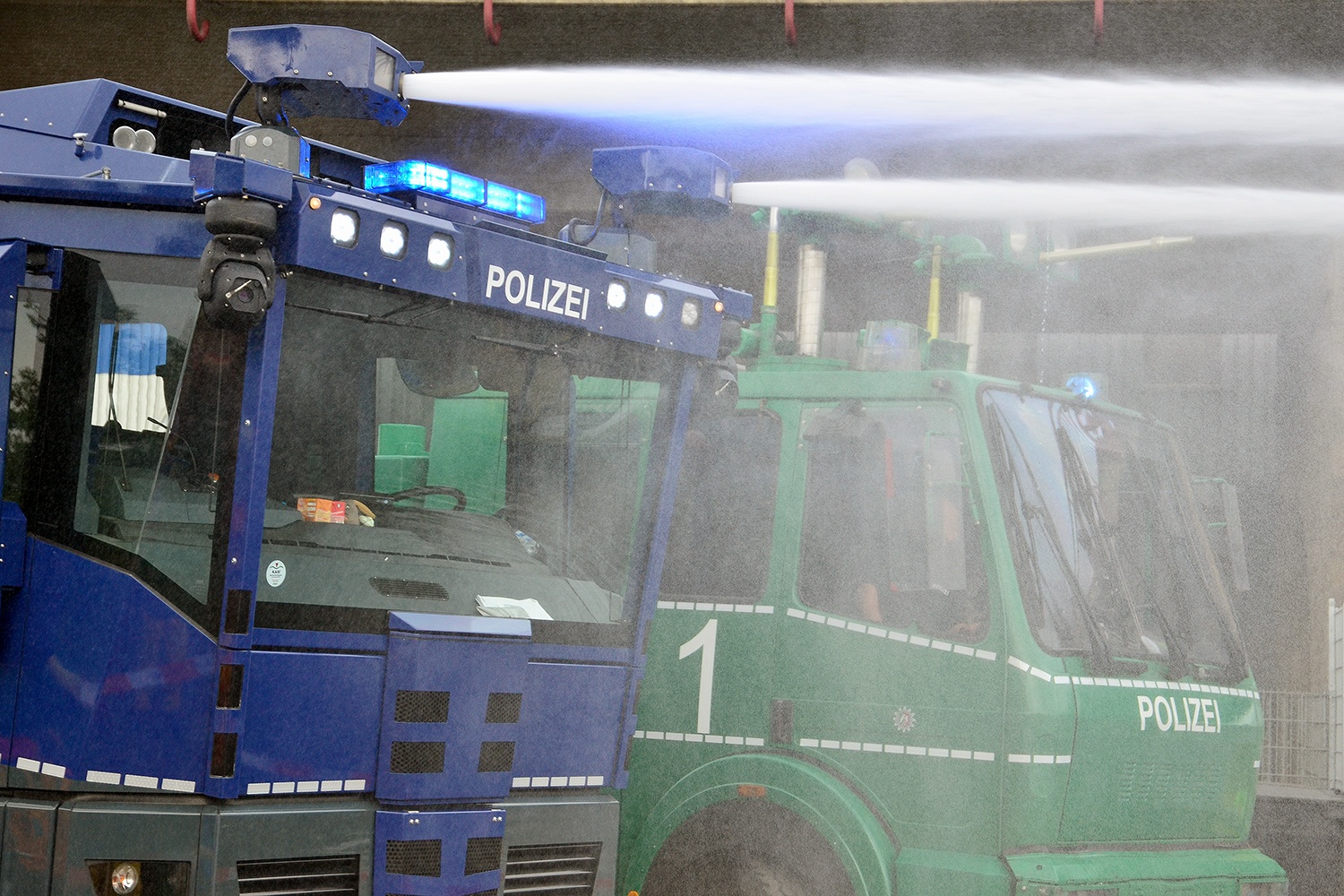Dutch police spray demonstrators off the street with German water cannons. This cross-border cooperation has been a unilateral tradition for 20 years.
For days, tens of thousands of activists have been blockading the government quarter in The Hague following a call by the group Extinction Rebellion. To clear an occupied highway, Dutch police deployed water cannons along with their crews from Germany. The vehicles came from the Technical Task Force of the Federal Police Headquarters in Ratzeburg in Schleswig-Holstein and Sankt Augustin in North Rhine-Westphalia. The city near Bonn is also home to an “International Operations Unit” of the German Federal Police, which, however, primarily carries out missions in crisis areas or for the EU border agency Frontex.
The loan of German water cannons is based on bilateral police agreements concluded by the Federal Republic with all nine neighboring states. These agreements regulate support for major events, such as sporting events or political summits.
The cross-border cooperation with Switzerland and France, whose governments signed a police treaty with Germany back in 1997 and 1999 respectively, is particularly well established. Twenty years ago, Switzerland requested water cannons from Baden-Württemberg and Bavaria for the first time to keep militant protests against the World Economic Forum in Davos in check.
Also in 2003, several German water cannons and squads of hundreds were deployed against thousands of demonstrators in Geneva, where events of a French G8 summit were being held. With the police as well as the gendarmerie in France, the Federal Police has now even established two separate units that deploy to events of cross-border significance or to counter migration.
If the police operate abroad, they need an invitation from the state in question and permission to take over sovereign activities. This, too, is stipulated in the intergovernmental agreements – in addition to the assumption of costs by the requesting government. In the case of the water cannons in The Hague, this is done by the police there, as a spokesman for the Federal Police confirmed to “nd.”
Meanwhile, many of these provisions are proving too narrow, such as when suspects are to be tracked or monitored as they flee across a national border. The government in Berlin therefore wants to renew the aging German-Swiss police treaty. In a recently presented legislative proposal, the main focus is on more sovereign powers. This would enable “particularly effective operational cross-border cooperation,” according to Federal Interior Minister Nancy Faeser (Social Democratic Party of Germany, SPD).
However, these intergovernmental agreements are not required for the use of German water cannons in neighboring countries. The assumption of sovereign activities at “mass events” in another country can also be based on the Prüm Treaty. At the instigation of Germany, the Benelux countries, Spain, France and Austria concluded this treaty for police cooperation in the town of the same name in the Eifel region. On the initiative of the then German Interior Minister Wolfgang Schäuble (Christian Democratic Union, CDU), the Prüm Treaty was incorporated into the legal framework of the EU and is binding under international law for all member states following a Council decision in 2008.
In practice, however, the mutual loan of equipment and personnel for major events is a German one-way street. It is true, for example, that French police authorities sent robust units to observe the handling of protests in Germany, as they did during a nuclear waste transport in 2010. However, these few foreign police officers were never decisive for German operations.
This is different with German water cannons, which are now being used to clear the highway in The Hague. Such support against mass protests in the neighboring country was and is a German tradition that has so far not come from any other EU state.
Published in German in „nd“.
Image: Wasserwerfer 10000, Dirk Vorderstraße (CC BY 2.0).





Leave a Reply